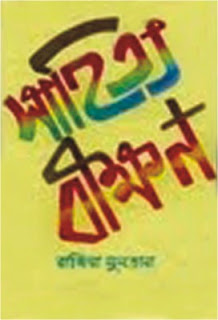From Research to Stories: Ogni O Jol. Edited by Shamim Azad; Published by Mawla Brothers and Brac University Press, 152 pages, Price: 200 Taka

Ogni O Jol is a collection of eleven short stories by young and established writers, and three papers by researchers. Story tellers always look for their raw materials in everyday happenings, in their surroundings. This has in fact been an age-old process. Here is a project conducted by Shamim Azad who gathered some researchers from Nigeria, England, Ghana, Egypt, Pakistan and Bangladesh to conduct a workshop named 'Pathways of Women Empowerment'. Twenty five authors took part in the six month long workshop. The findings were given to some writers in the form of video clippings and case studies. The writers then put their imagination at work and came up with some extraordinary stories about some very ordinary women of Bangladesh in this book. The book is comprised of two stories in English and all others in Bangla, and the group of writers covers both genders. Firdous Azim, well known Professor of English, shares her views about transforming research work into fiction. The asso



